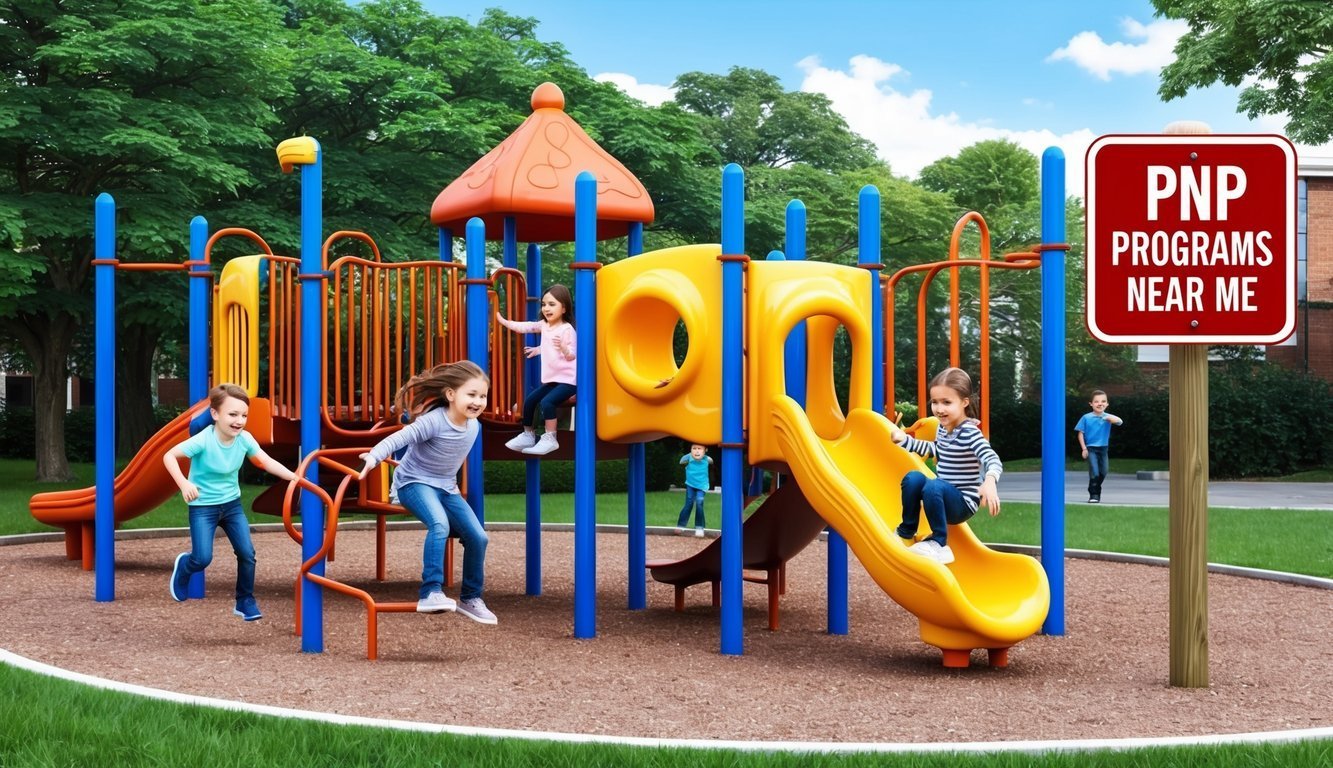Finding the right Pediatric Nurse Practitioner (PNP) program near you can significantly impact your career in healthcare.
The best programs offer a mix of online and in-person options.
This allows you to choose what suits your schedule and learning style.
Whether you’re seeking to advance your education with a Master of Science in Nursing (MSN) or a Doctor of Nursing Practice (DNP), understanding your options is the first step.
Pediatric Nurse Practitioner programs focus on equipping you with essential skills for providing care to children.
These programs include valuable clinical training and certifications that ensure you meet the health needs of young patients effectively.
By exploring nearby options, you can find programs that align with your professional goals and personal circumstances.
As you embark on this journey, make sure to evaluate the program structure, costs, and admission criteria.
This information can help you make an informed decision and ultimately lead to a rewarding career in pediatric nursing.
Key Takeaways
- PNP programs offer a mix of online and in-person learning.
- Clinical training is key to becoming a successful Pediatric Nurse Practitioner.
- Researching program criteria can help you find the right fit for your career.
Understanding Pediatric Nurse Practitioner Programs
Pediatric Nurse Practitioner (PNP) programs prepare you to provide specialized care to children.
These programs focus on primary care, illness prevention, chronic illness management, and health promotion.
Scope of Pediatric Primary Care
Pediatric primary care is essential for maintaining the health of children from infancy through young adulthood.
As a Pediatric Nurse Practitioner (PNP-PC), you will address a wide range of health issues.
Your responsibilities may include:
- Well-child visits: Regular check-ups to monitor growth and development.
- Illness management: Diagnosing and treating common childhood illnesses.
- Chronic illness care: Managing conditions like asthma and diabetes.
- Health education: Guiding families on nutrition, safety, and development.
In addition, you will focus on quality improvement initiatives to enhance patient care.
Understanding the importance of prevention allows you to promote healthier lifestyles among young patients.
The Role of Pediatric Nurse Practitioners
As a Pediatric Nurse Practitioner, you play a vital role in delivering quality healthcare.
You work both independently and in collaboration with pediatricians and other healthcare providers.
Key functions include:
- Assessment: Conducting thorough evaluations of patients’ health.
- Diagnosis: Identifying health conditions affecting children.
- Treatment plans: Developing tailored strategies for individual patients.
- Family support: Educating families about health management and illness prevention.
Your role also involves advocating for pediatric health issues within the community.
With your knowledge and skills, you contribute to healthier futures for children and adolescents through focused care.
Academic Framework of PNP Programs

The academic framework of Pediatric Nurse Practitioner (PNP) programs is structured to equip you with essential knowledge and skills.
The curriculum emphasizes both core components and specialized training necessary for certification.
Core Curriculum Components
In a PNP program, the core curriculum includes critical subjects that enhance your understanding of pediatric care.
Key topics often covered are:
- Pediatric Health Assessment: You learn to conduct thorough assessments of children, which is vital for diagnosis and treatment.
- Pharmacology: This area focuses on medications used in pediatrics, ensuring safe and effective prescribing.
- Pathophysiology: Understanding disease processes in children is crucial for effective care planning.
- Clinical Practice: The program typically requires a significant number of clinical hours, including hands-on clinical rotations, for practical experience.
Most PNP programs lead to a Master of Science in Nursing (MSN) or a Doctor of Nursing Practice (DNP) degree.
This advanced education prepares you for various roles in pediatric nursing, focusing on both health promotion and disease management.
Specialized Pediatric Nursing Certification
Upon completing your PNP program, you can pursue specialized pediatric nursing certification.
The Pediatric Nursing Certification Board (PNCB) offers certifications such as the Pediatric Nurse Practitioner (PNP) certification, which validates your skills in pediatric care.
To qualify, you must meet specific requirements, including:
- Holding a Master’s degree in nursing or a Doctor of Nursing Practice.
- Completing a specified number of clinical hours in pediatrics during your education.
- Passing a rigorous certification exam that assesses your knowledge and competency in the field.
This certification enhances your credibility as a pediatric nurse practitioner, opening doors to advanced practice roles and improving your career prospects.
A post-graduate certificate may also be available for those seeking additional specialization.
Clinical Training and Certifications

Clinical training is essential for pediatric nurse practitioners (PNPs).
Specialized experiences in various settings help you gain hands-on skills.
Certifications are the benchmarks to ensure you are qualified to work in this field.
Clinical Rotations and Placements
Clinical rotations provide you with practical experience in real-world settings.
You may complete placements in a variety of facilities, including:
- Pediatric Clinics
- School-Based Health Centers
- Emergency Departments
- Community Health Clinics
These clinical sites expose you to different age groups, such as infants and adolescents.
During your training, you will work closely with patients, learning to provide both preventive and acute care.
Experience in diverse environments enhances your ability to manage various health issues.
Achieving National Certification
Achieving national certification is a crucial step for PNPs.
After completing your clinical training, you must pass a certification exam.
This exam includes topics relevant to pediatric health care.
The certification pass rate is an important factor when selecting programs.
You should look for programs with high pass rates to increase your chances of success.
Most certification programs require you to have a Doctor of Nursing Practice (DNP) or a Master of Science in Nursing (MSN) degree.
Consider the specific certification that aligns with your career goals, such as the Pediatric Acute Care Nurse Practitioner certification.
This will guide you toward the right training programs and ensure your preparedness for the exam.
Program Selection and Admission Criteria

Choosing the right Pediatric Nurse Practitioner (PNP) program involves several important factors.
You need to consider program reputation, length, and cost, as well as the accreditation of the institution.
Understanding these elements helps you make an informed choice that fits your career goals.
Identifying Top PNP Programs
When searching for the best pediatric nurse practitioner programs, accreditation is key.
Look for programs accredited by the Commission on Collegiate Nursing Education (CCNE) or the Accreditation Commission for Education in Nursing (ACEN).
They ensure high educational standards.
Additionally, consider the program’s format.
Many schools offer hybrid learning, which combines online and in-person classes.
This can offer you flexibility while still providing essential hands-on experience.
Graduation rates and student-faculty ratios are also important metrics.
Programs with higher graduation rates often indicate strong student support.
Use resources like the PNCB for insights into recognized programs.
Understanding Program Length and Cost
The length and cost of PNP programs vary significantly.
Generally, RN to NP programs may take 2 to 4 years, depending on your starting qualifications.
For example, a Bachelor of Science in Nursing (BSN) to Doctor of Nursing Practice (DNP) can take about 3 to 4 years, while a Master of Science in Nursing (MSN) to DNP may take around 2 years.
Tuition costs can also vary widely.
Here’s a basic breakdown:
| Program Type | Estimated Duration | Average Tuition Cost |
|---|---|---|
| BSN to DNP | 3-4 years | $30,000 – $60,000 |
| MSN to DNP | 2 years | $20,000 – $50,000 |
| RN to NP | 2-4 years | $25,000 – $55,000 |
Be sure to check specific programs for detailed pricing, as some may offer financial aid or scholarships.
Career Pathways for Pediatric Nurse Practitioners

As a Pediatric Nurse Practitioner (PNP), your career can take many exciting directions.
There are opportunities for advancement in the nursing profession, as well as options for specialization and leadership roles.
Advancing in the Nursing Profession
You can elevate your role in healthcare by becoming an advanced practice registered nurse (APRN).
This requires obtaining a Master of Science in Nursing (MSN) or a Doctor of Nursing Practice (DNP).
With further education, you can work as a PNP focusing on pediatric acute care, where you handle serious conditions.
Completing residency programs and seeking mentorship from experienced preceptors can significantly enhance your skills and knowledge.
In addition, your involvement with the College of Nursing can provide resources for networking and professional development.
Staying updated with certifications and attending workshops can open doors to higher-paying positions in your field.
Opportunities for Specialization and Leadership
As you progress in your career, consider specializing in areas like immunizations, well-child exams, or diagnostics.
Each specialty requires specific training, which can be pursued through continuing education programs.
Leadership roles are also available for PNPs in healthcare settings.
You might supervise nursing staff or lead community health initiatives.
These roles not only increase your impact on patient care but also help shape healthcare delivery.
In addition, engaging with local healthcare organizations can present opportunities for professional growth.
Networking with peers and joining professional associations can guide you in finding resources and support for your career journey.
Frequently Asked Questions

In this section, you will find important information about Pediatric Nurse Practitioner (PNP) programs.
The following questions address common concerns regarding requirements, duration, salary, and more.
What are the requirements for Pediatric Nurse Practitioner programs?
To enroll in a Pediatric Nurse Practitioner program, you typically need to hold a Bachelor of Science in Nursing (BSN) degree.
You are also required to have a current nursing license and some programs may ask for relevant clinical experience.
Additional prerequisites may include specific coursework in health assessment, pharmacology, and advanced practice nursing.
How long does it typically take to complete a Pediatric Nurse Practitioner program?
Most Pediatric Nurse Practitioner programs take about 2 to 3 years to complete if you attend full-time.
Part-time options may extend the time needed.
The total credits usually range from 40 to 50, which includes both classroom learning and clinical practice hours.
Can Pediatric Nurse Practitioners also provide care to adult patients?
Pediatric Nurse Practitioners are trained specifically to care for infants, children, and adolescents.
While some PNPs may have the skills to care for adults, it is generally not their primary focus.
If you want to care for all age groups, consider pursuing a Family Nurse Practitioner (FNP) program instead.
In which states do Pediatric Nurse Practitioners earn the highest salaries?
Pediatric Nurse Practitioners can earn higher salaries in states like California, New York, and Texas.
Salaries may vary based on factors such as experience and the type of healthcare facility.
Generally, urban areas tend to offer higher wages compared to rural settings.
What is the primary distinction between a Pediatric Nurse Practitioner (PNP) and a Family Nurse Practitioner (FNP)?
The main difference is the patient age group each practitioner cares for.
PNPs focus on healthcare for children, while FNPs can treat patients of all ages, from infants to the elderly.
This specialization influences the training and clinical experience required for each certification.
What are the options for pursuing a Pediatric Nurse Practitioner program online?
Many universities offer online Pediatric Nurse Practitioner programs, which allow for flexibility in your education.
Online programs generally combine virtual coursework with in-person clinical practice.
Make sure to choose a program that is accredited and meets your state’s requirements for licensure.
You can find more information on options through sites like PNCB.

